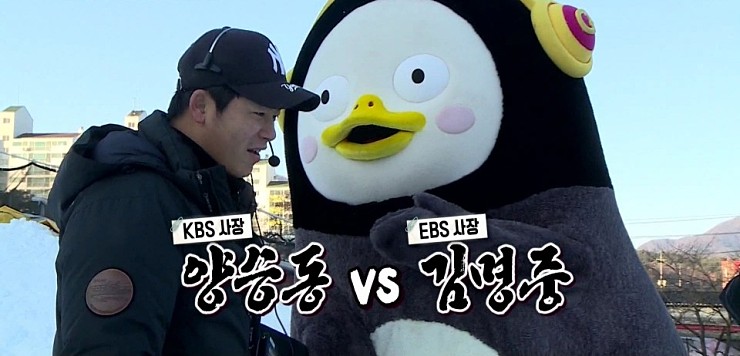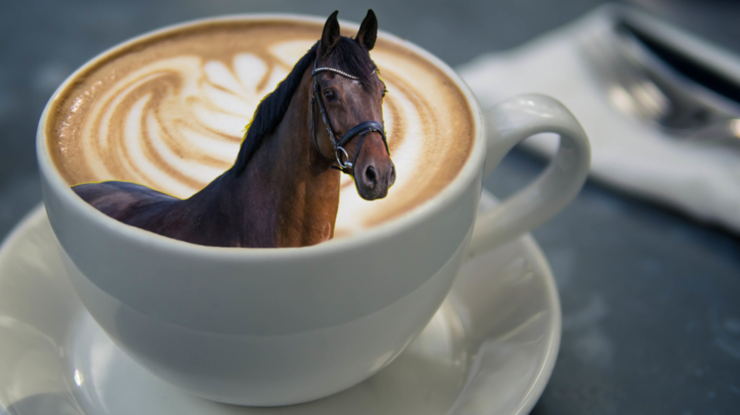Have you ever heard the famous Korean expression “Latte is a horse”? This is a modified version of the phrase “Na ttae neun mal i ya”, which means “when I was your age…”, in Korean. This expression is often used when older people are explaining things to young people. However these days it has come to reflect the sarcastic views of young people when listening to a “lecture” on how things used to be, from the elderly. This is not the only expression dealing with the perceived condescending attitude of older people towards the young that is gaining in popularity these days. The Dankook Herald (the DKH) investigated more of these expressions and the reason for their rise in popularity.
On September 25, 2019, the BBC chose the Korean word ‘Kkondae’, which means ‘condescending old people’, as their ‘Word of the Day’. According to the background explanation, a movement to change old customs in Korea is on the rise. ‘Latte is a horse’ and ‘Kkondae’ are both trending phrases that illustrate the defiance of the younger generation to maintaining these outdated traditions. For example, many young people are questioning the need to be always be obedient to older generations, just to be considered a well-mannered person. A, who belongs to Generation Z, said, “It is unfair for me to give up my rights to decide something for myself, just to gain the favor of someone older.” Korean society is based on Confucianism and one of its main principles is the need to respect your elders, including someone who is only a year older. Koreans have always been respectful of older people and follow everything they say. Resisting their advice, or even answering back to them, is considered impolite, rude, and unusual. As a result, it is natural for people to become authoritative when they grow old. Student B, who is a sophomore at Dankook University, said, “The advice I get from older generations is not always right. Some of what they say is incorrect and outdated.” Since Korea has taken part in globalization, traditional tendencies are no longer suitable reactions to modern Korean culture. Many social norms have changed and many older people find it difficult to adapt. Their thoughts and behaviors toward the young don’t match the surrounding environment. As a result, the Internet is alight with criticism of the elderly and their outdated ways. On the Internet, where anonymity is guaranteed, the young can express their opinions freely no matter how old their audience may be. They freely complain about the pressure they feel from respecting the elderly by being sarcastic with them. This growing movement is called the ‘Anti-Kkondae’ movement.
With the rising popularity of “Pengsoo”, a new EBS character, ‘the Anti-kkondae’ movement is spreading even faster among younger generations in Korea. According to various media reports that analyzed Pengsoo’s popularity, many young people feel vicarious pleasure through his character when he criticizes the career-oriented, hierarchical ‘Kkondae culture.’ For instance, even when Pengsoo is being scolded for calling his boss by his name, he argues a company would do much better if the boss acted more like a friend. Comforted by Pengsoo’s perspective, young people are becoming more resistant to the ‘Kkondaes’ who force their views of social order on the young. This kind of resistance is not limited to Korea. The Anti-kkondae’ movement is rapidly becoming an international phenomenon. On November 5, 2019, Chloe Swarbrick referred to an older lawmaker by saying, “Ok, boomer” when she was interrupted delivering her speech before the New Zealand parliament. Boomer is a phrase often used by younger generations on Twitter and Tiktok to refute “baby boomers” whenever they say something worth criticizing. The New York Times reported this case as a sign of resistance by the Z-generation to the older generation who often complain about problems without offering a viable solution. It is also a sign that younger generation will no longer treat their elders with reverence, just because they are “older.”
 |
| ▲ Pengsoo argues a company would do much better if the boss acted more like a friend. (Photo from KBS2) |
To learn more about the problem of ‘Kkondae’ in Korean society, the DKH conducted a Google survey targeting 30 university students. According to the survey results, 93% of respondents were familiar with the word ‘Kkondae.’ Many students defined ‘Kkondae’ as “a didactic, old person who tends to ignore younger people and forces them to accept his or her advice”, “a close-minded, old person who does not try to understand the generation gap”, or “an anachronistic adult who often interferes in younger people’s lives based on his or her experience.” 79% of the students answered that they have used the word ‘Kkondae.’ Most of them used it to refer to an older person who started a conversation with “when I was your age” and compels them to follow his or her outdated way of thinking. Some students also used it to express sarcasm towards their seniors, while others used it to criticize older people who ignored their input, just because they were younger. It was interesting to note that students showed two conflicting opinions when they were asked to express their thoughts about the word ‘Kkondae.’ Some considered it as slang that is acceptable to use in suitable situations, whereas others thought that it may incite inter-generational conflict and eventually have a negative impact on society as a whole. The survey revealed that many students thought the word ‘Kkondae’ reflected a frustration towards older generations who try to influence a younger person’s behavior or thoughts based on his or her experiences, without respecting the perspective of contemporary generations.
Overall, while ‘Anti-Kkondae’ can be cause of inter-generational conflict, it can also be seen as a mechanism for change. Young people can use it as a way to break free from outdated customs, and older generations can use it as a chance to re-think their behavior and reconsider ideas that are no longer appropriate. In other words, the Anti-Kkondae’ movement forces all generations to rethink their perspectives of the each other. This movement is not just about resisting the old, but rather is a means to bring about much needed social change.
 |
| ▲ "Latte is a horse" is a modified version of the phrase "Na ttae neun mal i ya", which means "When I was your age" in Korean. (Photo from Naver post) |
임재도, 남윤경 dankookherald@gmail.com

![[Campus Magnifier] Let's Surf the Library!](/news/photo/202404/12496_1765_4143.jpg) [Campus Magnifier] Let's Surf the Library!
[Campus Magnifier] Let's Surf the Library!
![[Campus Magnifier] Let's Surf the Library!](/news/thumbnail/202404/12496_1765_4143_v150.jpg)





